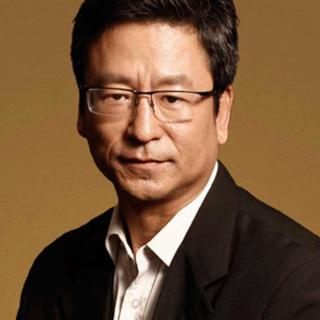
介绍:
If asked to name the top news commentator in China, many may nominate Bai Yansong, one of the most recognizable faces in the country.
Over the past two decades, this Inner-Mongolia-born journalist has perched atop the anchor chair on many influential news programs, such as One on One and News Weekly. While his quick-witted, incisive yet calm and mild style has earned him a loyal following.
"I think the one thing that attracts me most to him is his personality. No matter how strongly people confront him, he has always been himself, which is pretty rare in today's society."
"My reason for watching his programs is due to his courage to speak up for common people, which touches me most."
"He cares for this day and age, which demonstrates the grand sentiments of an intellectual. I don't always agree with him, but I do appreciate his attitude. "
People's descriptions about this independent, concerned media personality do fit the figure depicted in Bai Yansong's latest book, "Bai's Talks", or in Chinese, "Bai Shuo".
"Compared with my two previous books, 'Painful and Happy' and 'Are You Living Happily Now? ', this one is definitely different. At that time, I wanted to write something about personal experience as well as the transitions of the media and society. But this book is more about my anxiety. I am looking forward to a greater country, a more promising life pattern and better individuals."
At first glance, "Bai Shuo" appears to be a comprehensive collection of speeches, as the book assembles a great number of Bai Yansong's public speeches during the past fifteen years. But leafing through the pages, readers with a keen eye may regard it as a biography, as the work soaks up the host's life stories when he provides advice on life, politics, media, art and social reform. For example, in one of the chapters, he explained why finding spice in life could solve a midlife crisis while in another speech, the anchor extensively explored how to lose with grace and dignity.
But the book is not exactly a colloquial Chicken Soup for the Soul. As a man working at the forefront of news for years, Bai Yansong also mentions much more pressing and controversial issues in today's China, such as why being a good Samaritan has become morally challenging, who are the real victims behind medical disputes, and how to evaluate China's transformation during the past sixty years.
"How do we understand China? Maybe every part of China could be treated with two different perspectives. For example, Chinese people act so differently in acquaintance society and strange freeman society. In my opinion, in an acquaintance society, we have the highest level of moral standard and self-discipline in the world. We are willing to sacrifice ourselves for our pal. But coming to a society full of strangers, we are thick-skinned and want to take advantages of others. If we talk about belief and faith, Chinese people do believe in something. But on another hand, many hold no reverence towards the Supreme Being. "
In face of numerous complexities, the presenter stresses that it is important to remain critical and rational all the time.
"My core idea is to let people no longer group others into good or bad, right or wrong, black or white, left-wing or right-wing and then force them to take sides. Our education fails to teach us to view this world with an open and diverse outlook. Sometimes remaining neutral and rational may lead to isolation. But our purpose is not to win favor, but to earn a brighter future for all of us. "
Though many readers may disapprove of the book's lukewarm tune, since Bai Yansong does not state his opinions in any intense or emotion-evoking manner, the multi-award winning host appeares to be indifferent.
"How should a reporter describe the world? In my opinion, we are just the keepers of words. Even if people question you, as long as you voice rationally, the history and the time will justify for you."
Although the title of the book, "Bai Shuo", could be literally translated into "Meaningless Talks" in English, Bai Yansong says he has always believed in journalism and its power in this roaring age. In the postscript, he twists the famous quote of Chinese literary giant Lu Xun: Hope is just like roads across the earth. For actually the earth had no roads to begin with, but when many men speak up, a road is made.
大家还在听

